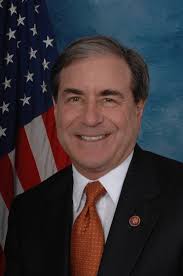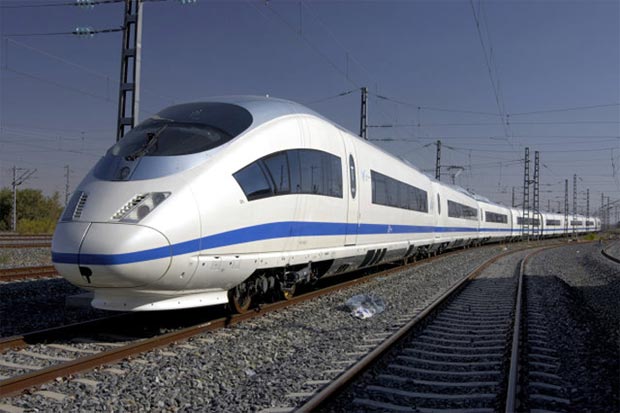House Budget Committee Chairman John Yarmuth raised eyebrows of transportation advocates this week when he suggested funding high-speed rail was a fool’s errand because new technology such as driverless cars could quickly make the locomotive obsolete.
Speaking after Wednesday’s Budget Committee hearing on infrastructure spending, Yarmuth (D–Kentucky) suggested that in 20 years, no one is going to ride in a high-speed train when they’ll be able to “hop in a self-driving car that can go 200 miles per hour,” Politico reported.
As a result, he added, "making investments in high-speed rail...might look like the dumbest money we’ve ever spent" 30 years from now.

Yarmuth added Congress needed to consider such future technology before allocating funds for older technology “as if nothing’s going to change.”
But transportation advocates say such thinking is just another way to delay improvements needed right now while suggesting there’s some silver bullet out there that will solve all our traffic problems on the horizon.
“It’s delay tactics and a form of denialism,” said Ben Fried of the TransitCenter think tank. “It’s like saying we are not going to make the improvements we know will work because we have some fantasy in our heads.”
Reached by Streetsblog, House Budget Committee Press Secretary Alexandra Weinroth walked back the rep’s apparent diss at trains, saying the comment was more about the need for Congress to act responsibly to fix infrastructure without turning a blind eye to imminent technological advancements.
“The Chairman strongly supports increasing funding for high-speed rail now and into the future.” she said. “He was simply making the point that we can’t know for certain how infrastructure might develop, so Congress must anticipate future needs and consider possible technological advancements when deliberating infrastructure investments.”
Still, Yarmuth’s comment was indicative of the kind of thinking found at the federal level, where elected officials have ignored how far trains and buses have come in the last few decades, according to Fried, who added change will only come on the local level.
“It points to the fact we need to make as much progress as we can on the city level,” he said. “Local leaders will make the change happen.”
That said, Amtrak’s popular Acela line is getting a $2.4-billion upgrade that could increase speeds 10 miles per hour along the tracks between Boston and Washington, allowing trains to reach up to 160 miles per hour, and cutting travel time by, well, you do the math.
But President Trump is no fan of Amtrak in general, calling for massive cuts in its budget.






